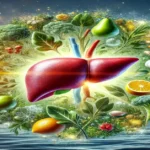The liver is one of the most vital organs in the human body, playing a pivotal role in metabolism, detoxification, and overall health maintenance. A healthy liver ensures the body functions optimally, while any dysfunction can lead to severe health issues. “Livcare” is a concept centered around liver health, encompassing prevention, care, and treatments tailored to support and rejuvenate liver function. This article explores the significance of liver health, common liver ailments, strategies for prevention, and effective treatments, along with lifestyle changes that can enhance liver wellness.
Understanding the Liver’s Role
The liver, the largest solid organ in the human body, is a powerhouse performing over 500 essential functions. Located in the upper right abdomen, it works tirelessly to:
- Detoxify Blood: The liver removes harmful substances, including toxins, alcohol, and drugs, from the bloodstream.
- Metabolize Nutrients: It processes nutrients absorbed from the digestive tract, converting them into usable forms for energy, growth, and repair.
- Produce Bile: This substance is essential for digesting fats and absorbing fat-soluble vitamins like A, D, E, and K.
- Regulate Blood Sugar: The liver maintains glucose balance by storing and releasing sugar as needed.
- Synthesize Proteins: It produces essential proteins, such as albumin and clotting factors, that regulate bodily functions.
- Store Vitamins and Minerals: The liver serves as a storage hub for vital nutrients like iron, copper, and vitamin B12.
Common Liver Diseases
Despite its resilience, the liver is susceptible to a variety of diseases and disorders. Some of the most prevalent include:
1. Fatty Liver Disease (FLD):
- Non-Alcoholic Fatty Liver Disease (NAFLD): Caused by obesity, insulin resistance, and high cholesterol levels.
- Alcoholic Fatty Liver Disease (AFLD): Resulting from excessive alcohol consumption.
2. Hepatitis:
- Inflammation of the liver caused by viruses (Hepatitis A, B, C, D, and E), alcohol, or autoimmune conditions.
3. Cirrhosis:
- Chronic scarring of liver tissue due to prolonged liver damage, often resulting from chronic alcohol abuse or hepatitis.
4. Liver Cancer:
- Hepatocellular carcinoma is the most common type of liver cancer, often linked to chronic hepatitis or cirrhosis.
5. Liver Failure:
- A severe condition where the liver loses its ability to function, requiring urgent medical intervention.
Symptoms of Liver Problems
Recognizing liver disease early can make a significant difference in treatment outcomes. Common symptoms include:
- Jaundice (yellowing of the skin and eyes)
- Fatigue
- Abdominal pain or swelling
- Dark urine
- Pale stool
- Nausea and vomiting
- Loss of appetite
- Bruising easily
Livcare: Prevention and Maintenance Strategies
Preventive measures and proactive care can significantly reduce the risk of liver disease. Here are comprehensive steps for Livcare:
1. Healthy Diet:
- Focus on a balanced diet rich in fruits, vegetables, lean proteins, and whole grains.
- Limit saturated fats, refined sugars, and salt.
- Incorporate liver-friendly foods like leafy greens, garlic, turmeric, and green tea.
2. Regular Exercise:
- Engage in at least 150 minutes of moderate exercise weekly to maintain a healthy weight and improve liver function.
3. Avoid Alcohol and Tobacco:
- Limit alcohol intake to prevent fatty liver disease and cirrhosis.
- Avoid tobacco, which increases the risk of liver cancer.
4. Vaccination:
- Get vaccinated against Hepatitis A and B to prevent these viral infections.
5. Hydration:
- Drink plenty of water to support liver detoxification and metabolic processes.
6. Safe Medication Use:
- Avoid overusing over-the-counter medications like acetaminophen, which can harm the liver.
7. Limit Exposure to Toxins:
- Use gloves and masks when handling chemicals or cleaning agents to avoid liver damage caused by toxins.
8. Regular Health Check-ups:
- Periodic liver function tests (LFTs) can help monitor liver health and detect abnormalities early.
Livcare Treatments: Medical and Alternative Approaches
For those already diagnosed with liver conditions, various treatments are available:
Medical Treatments:
- Medications: Antiviral drugs for hepatitis, diuretics for managing fluid retention, and medications to control cholesterol and blood sugar levels.
- Lifestyle Modifications: Diet and exercise plans tailored to liver health.
- Surgical Interventions: Procedures like liver biopsy, liver resection, or, in severe cases, liver transplantation.
Alternative and Complementary Therapies:
- Herbal Remedies: Milk thistle and dandelion root are popular for supporting liver function.
- Acupuncture: Some believe acupuncture can reduce liver-related symptoms by restoring energy balance.
- Ayurveda and Traditional Medicine: Holistic approaches focus on detoxification and dietary adjustments.
The Role of Mental and Emotional Health in Livcare
Stress and emotional well-being have a profound impact on liver health. Chronic stress can lead to lifestyle choices that harm the liver, such as poor diet, alcohol consumption, and inactivity. Practices like yoga, meditation, and counseling can promote both mental and physical wellness, complementing liver care strategies.
Innovations in Liver Health
Recent advancements in liver health research and technology offer hope for better prevention and treatment:
- Liver Regeneration Studies: Investigating the liver’s natural ability to regenerate.
- Gene Therapy: Targeting genetic causes of liver diseases.
- Non-Invasive Diagnostic Tools: FibroScan and advanced imaging techniques for early detection.
- Biotechnology: Development of bioengineered liver tissues for transplantation.
Conclusion
Livcare is a holistic approach to maintaining and enhancing liver health, emphasizing prevention, timely diagnosis, and effective treatment. By adopting a liver-friendly lifestyle, staying informed, and seeking medical guidance when needed, individuals can significantly improve their quality of life and longevity.
FAQs on Livcare
1. What is Livcare? Livcare refers to a comprehensive approach to liver health that includes preventive measures, lifestyle changes, and treatments to support and enhance liver function.
2. How can I know if my liver is healthy? Regular health check-ups, including liver function tests (LFTs), and monitoring for symptoms like fatigue, jaundice, or abdominal pain can help assess liver health.
3. Are there specific foods that support liver health? Yes, foods like leafy greens, garlic, turmeric, green tea, fatty fish, and nuts are beneficial for liver health.
4. Can liver diseases be reversed? Early-stage liver diseases like fatty liver can often be reversed with proper diet, exercise, and avoiding alcohol. Advanced conditions like cirrhosis, however, may require medical treatment.
5. Is it safe to use herbal remedies for liver health? Herbal remedies like milk thistle may support liver health, but they should be used under the guidance of a healthcare professional to avoid potential side effects or interactions.
6. How often should I have a liver health check-up? For individuals at risk (e.g., those with obesity, diabetes, or alcohol use), annual check-ups are recommended. For others, routine health exams should include liver function assessments as advised by a doctor.







